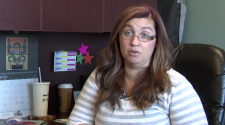Sometimes it takes major, front-page level events to make us pay attention to a problem that has been with us all along. The COVID-19 pandemic raised awareness that public health crises tend to take a disproportionate share of minority lives. And the untimely death of Chadwick Boseman was the catalyst for headlines telling us that the Black community has the highest rate of colorectal cancer of any racial or ethnic group in the country.
The fact is, racial disparities in healthcare are not, by any means, a new development. For generations, Black and Hispanic Americans, in particular have had higher mortality rates for many types of cancer than whites. Even if the cancer incidence rate is roughly the same, Blacks and Latinx populations are more likely to die from the disease. As our treatments and technologies for fighting cancer have evolved and broken new ground in saving lives, this racial disparity has persisted.
This is as true here in Florida as it is nationally. Two academic studies published just this year found that Blacks in our state have a lesser chance of survival if they are diagnosed with pancreatic cancer and Black women in Florida with ovarian cancer have a comparably higher death rate.
We can’t discuss racial disparities in cancer mortality without examining the impact of cancer screenings or, more accurately, the higher mortality rates that are associated with late-stage cancer diagnosis and best combated by early detection. Sadly, Black and Hispanic Americans are more likely to be diagnosed with advanced cancer than white Americans. And a recent report issued by the American Association of Cancer Research has found that for available cancer screenings – mammograms, colonoscopies, cervical cancer screenings – minority populations are receiving significantly fewer recommended examinations.
The impact of early cancer detection is undeniable. If a cancer is diagnosed early, the five-year survival chances are around 90 percent. When a cancer is diagnosed late, after it has had a chance to spread, those survival odds drop to about one in five.
This is a problem that has persisted for too long. Policymakers are looking at steps to address some of the key social determinants of health like transportation and nutrition that can protect the health of more vulnerable people, but some of the most powerful weapons in addressing racial disparities in cancer are closer than many people realize
Large-scale clinical testing is currently taking place on a new approach to cancer screening that can complement the tools we currently have. Companies are evaluating a single blood test that can detect many different cancers. Right now, one of these tests has recruited over 100,000 clinical trial participants, including many in Florida at more than 10 different trial sites throughout the state. The results thus far are encouraging.
This technology has the potential to fundamentally change how we detect cancer and, in turn, how we treat and research the disease. Right now, only five cancers – breast, colorectal, cervical, prostate, and “high-risk” lung cancer – have available screenings. Then consider that Black men are two and a half times more likely to die of stomach cancer than their counterparts of other races and ethnic backgrounds. There isn’t a screening for stomach cancer, so doctors have no way of catching it before Floridians show up with signs and symptoms of distress. It is well understood that if we can catch cancer earlier, we can save more lives.
Knowing that this multi-cancer blood test is coming, it is incumbent upon our public officials to make sure it is widely accessible for doctors and patients. A starting point lies with overcoming obstacles to Medicare coverage, knowing that older Americans have disproportionately high cancer rates.
This type of innovation can help address the screening disparities that lead to tragically high death rates in our minority communities. Every community has a healthcare professional who can draw blood.
Racial health disparities in the United States have gone unaddressed for far too long. If a tool is placed in our hands to help close these mortality gaps, we shouldn’t waste any time in putting it to use.
Luis E. Raez, MD, FACP, FCCP is president of the Florida Society of Clinical Oncology and serves as the chief scientific officer and medical director at Memorial Cancer Institute/Memorial Health Care System, and clinical professor of medicine at the Herbert Wertheim College of Medicine at Florida International University.
Read or Share this story: https://www.pnj.com/story/opinion/2020/11/22/racial-disparities-healthcare-have-gone-too-long-guestview/3775759001/
















